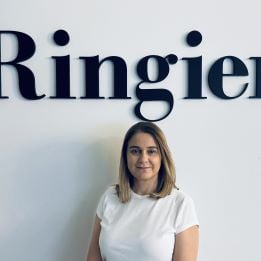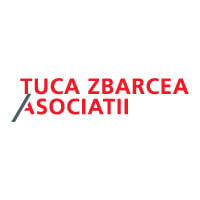

Chief of legal department | Ringier Romania



Daniela Bulacu
Chief of legal department | Ringier Romania
How do you approach managing legal aspects during periods of instability or crises, and how does your legal strategy align with the broader business strategy to ensure the organisation’s resilience?
Managing legal aspects during periods of instability or crises involves a balance of proactive risk management, timely responses, and alignment with the broader organisational strategy to ensure resilience. As the general counsel I ensure that legal risks during a crisis are managed through well-defined crisis response plans. This includes preparing for potential legal challenges such as contract breaches, regulatory inquiries, employee disputes, or compliance issues. By working with other business leaders, the legal team models different crisis scenarios (economic downturns, cybersecurity threats, or supply chain disruptions) and develops legal strategies to address them.
Ensuring the organisation complies with applicable laws and regulations during instability is critical. A general counsel will review compliance mechanisms and update protocols as necessary to stay within legal boundaries. In moments of crisis, the general counsel provides real-time advice to the leadership team to navigate evolving legal challenges. This might include guiding on contractual obligations, regulatory relief options, employment law changes, or crisis-related litigation risks. The general counsel plays a key role in managing legal risks related to public and internal communications during crises. By ensuring that statements and actions align with legal obligations and mitigate potential legal exposure, we help protect the organisation’s reputation. A legal strategy during crises must be integrated into the business strategy. The general counsel must align legal decisions with the organisation’s priorities, whether it is safeguarding assets, retaining clients, ensuring operational continuity, or managing reputation. Legal teams work with HR, finance, IT, and operations to ensure that legal considerations (such as data privacy, employment law) align with the organisation’s crisis response strategy. For example, in a cyberattack, the legal team coordinates with cybersecurity teams to handle breach notifications and regulatory obligations.
The legal strategy must remain adaptable as crises evolve. General counsel work on providing flexible legal frameworks (such as temporary contract amendments or revised policies) to accommodate changing business conditions without violating legal agreements. Creative legal approaches may be required to solve new challenges. For instance, navigating regulatory frameworks or dealing with force majeure clauses in contracts might involve developing novel interpretations of the law. We must ensure organisational resilience through risk mitigation — legal strategies during a crisis focus on mitigating risks, such as litigation exposure or regulatory penalties, which can have long-term effects on the organisation’s resilience; post-crisis legal review — after the crisis, the general counsel conducts a post-mortem analysis of legal responses to identify lessons learned and adjust legal frameworks, contracts, and compliance mechanisms to ensure the organisation is more resilient for future challenges; legal training—- the general counsel often collaborates with leadership to enhance legal awareness across the organisation, ensuring that employees are well-prepared to handle legal issues should another crisis arise.
By integrating these legal approaches with the overall business strategy, general counsel ensure that legal operations support the organisation’s long-term resilience, protecting it from significant legal, financial, or reputational harm during instability or crises.
What emerging technologies do you see as having the most significant impact on the legal profession in the near future, and how do you stay updated on these developments?
As a general counsel in the media business, I see several emerging technologies that will have a significant impact on the legal profession in the near future:
Artificial intelligence and machine learning — AI is transforming the legal landscape by streamlining document review, contract analysis, and legal research. This technology is making the legal process more efficient, reducing the time needed for routine tasks, and allowing legal teams to focus on more strategic matters. Blockchain Technology — Blockchain’s application to areas like smart contracts, intellectual property rights, and digital rights management will have a profound effect on the media industry. It offers secure, transparent ways to manage contracts, royalty payments, and content distribution, reducing disputes and enhancing legal clarity. Data privacy and cybersecurity — with increasing regulations like the GDPR and other privacy laws globally, technology focused on data protection and cybersecurity is crucial. Media companies handle vast amounts of sensitive data, and legal professionals need to ensure compliance with evolving privacy laws while addressing cybersecurity risks. Cloud computing and collaboration tools — Cloud-based legal management platforms and collaboration tools are becoming essential for managing contracts, sharing legal documents, and maintaining case workflows. They allow teams to work remotely, access critical information securely, and ensure compliance with legal standards.
To stay updated on these developments I follow industry-specific legal publications and blogs to keep up with technology trends and their legal implications; attend webinars and conferences focused on emerging technologies and legal technology solutions; engage with professional networks and technology thought leaders to gain insight into how new technologies are being applied in the legal profession; and collaborate with tech-focused departments within the company to understand their innovations and assess potential legal impacts. In the ever-evolving media industry, staying at the intersection of technology and law is critical to ensuring proactive, forward-thinking legal strategies.
What measures has your company taken to embed sustainability practices into its core business operations, and how does the role of the general counsel contribute to driving and ensuring sustainable practices within the company?
As the general counsel of a media company, I can say that we have taken several measures to embed sustainability practices into our core business operations. We recognise that sustainability is not just an ethical imperative but also a strategic one that aligns with our long-term goals of resilience and value creation. Here are the key areas in which we have integrated sustainability: content production and distribution, supply chain management, diversity, equity, and inclusion (DEI), community engagement and content responsibility, energy and waste management.
My role is pivotal in driving and ensuring sustainable practices within the company through several avenues. I ensure that our sustainability practices comply with all relevant environmental, social, and governance (ESG) regulations, both locally and globally. I play a key role in embedding sustainability clauses in our contracts with suppliers, partners, and clients. This includes ensuring that all parties are held to high sustainability standards, which mitigates risk and promotes responsible practices throughout our business ecosystem.
I am involved in drafting and implementing company policies related to sustainability, such as ethical sourcing guidelines, carbon reduction commitments, and codes of conduct. My team and I work closely with other departments to ensure these policies are actionable and enforceable. Sustainability is increasingly becoming a component of our risk management strategy. I oversee the integration of sustainability-related risks, such as regulatory changes or reputational risks, into our overall risk framework, ensuring the company is prepared to adapt to evolving standards. I engage with external stakeholders, including regulators, investors, and advocacy groups, to ensure that our sustainability efforts are transparent and aligned with industry best practices. This builds trust and ensures we are held accountable for our commitments.
In essence, the general counsel’s role is integral to embedding sustainability into the business, from a legal, operational, and strategic standpoint. By ensuring that sustainability is woven into the fabric of our operations and decision-making, we can contribute meaningfully to long-term value creation for both the company and society.
Chief of legal department | Ringier Romania
Chief of legal department | Ringier Romania